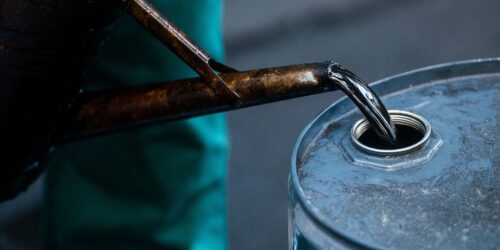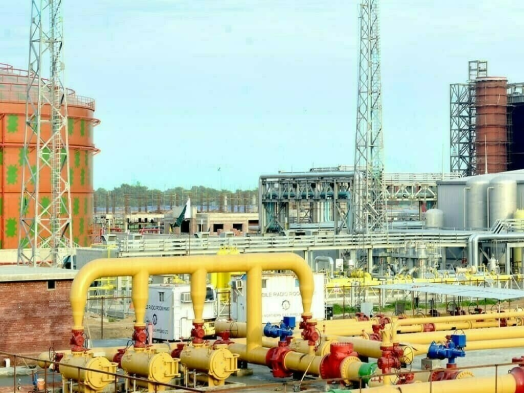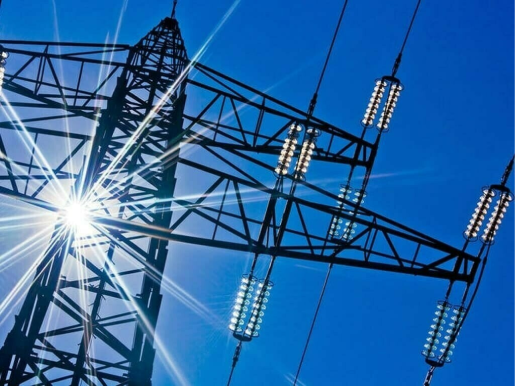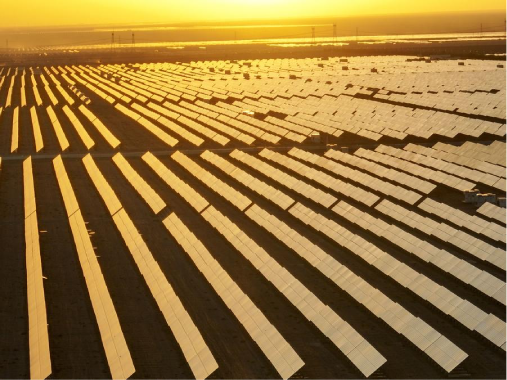The Cabinet Committee on Energy (CCoE) is likely to approve the long-awaited Pakistan Oil Refining Policy 2021 on Friday (tomorrow) aimed at attracting $ 10-15 billion for setting up a world-scale deep conversion refinery and petrochemical complex and potential investors are seeking incentives/commitments prior to investment decisions.
The sources said Petroleum Division had tabled the policy before the Economic Coordination Committee (ECC) of the Cabinet on August 11, 2021 but Minister for Planning, Development and Special Initiatives, Asad Umar, who is also Chairman of CCoE raised objections, maintaining that since policy is related to energy sector, it should first route through the CCoE.
Umar, who is said to have differences with SAPM on Power and Petroleum Tabish Gauhar on several issues, sought clarifications on different points of the policy, including benefits to be reaped by giving incentives to existing refineries. He asked questions about profits of new and existing refineries.
According to Tabish Gauhar, he has revealed that establishment of two big refineries is not possible in Pakistan, hence, both Saudi Arabia and the UAE should work on feasibility of a joint refinery.
In accordance with the Pakistan Oil (Refining, Blending, Transportation, Storage and Marketing) Rules 2016, a license from the Oil & Gas Regulatory Authority shall be required for construction and operation of the refinery. No new hydro-skimming refinery shall be allowed to be installed in the country. There shall be no restriction on the selection of equipment, technology or process other than the fact that it must be a deep conversion refinery.
According to the draft policy, infrastructure such as Single Point Mooring (SPM), Single Buoy Mooring {SBM), jetties, subsea/land oil pipelines, oil terminals, Petrochemical plants and tank farms shall be treated as separate projects and fiscal incentives shall also be applicable to these projects. Wherever applicable, separate licences will be obtained for the infrastructure projects from the relevant authorities.
The government shall not provide any product off-take guarantees. Refineries shall be allowed to sell products to any marketing company, including their own affiliates in marketing and distribution. However, import of finished products by OMCs shall be limited to only projected deficit in accordance with the provisions of Rule 35(g) of the Pakistan Oil Rules, 2016, ensuring uplifting of local refined products first.
Locally produced crude shall be allocated to the closest refinery that can handle crude with such specifications. Once allocated, it shall not be cancelled if new refinery comes closer to the crude source, unless mutually agreed amongst the existing user and new proposed user and the Petroleum Division. After uplifting of local crude oil, if so allocated, the refineries shall be free to import crude oil from any source except from prohibited countries with no obligation or guarantee on part of the Government of Pakistan.
Refineries will be allowed export of surplus petroleum products, or products with specifications that do not have local demand under the intimation to OGRA and Petroleum Division.
No refinery shall be allowed to market, in Pakistan, petroleum products of specifications with inferior quality than those notified by Petroleum Division from time to time, unless it has a waiver from the Government of Pakistan. If it produces products of inferior quality and does not have a waiver to sell it locally, it shall be free to export it.
Pricing regime: the product pricing formula of refineries shall be based on “ True Import Parity Price’” to be derived from Arab Gulf Mean FOB spot price, or if not published shall be derived from Singapore Mean FOB price. All other elements including premium, freight, port charges, incidentals, import duties, exchange rate, provincial taxes as applicable and other price adjustments shall be added, as per PSO actual imports, in the FOB price to arrive at True Import Parity Price. Additionally, prevalent inland freight of imported crude oil to refineries and provincial duties, levies/cess and taxes (with import duty on crude oil, if any, at import of crude oil) shall be added for refineries.
There shall be no import duties and Sales Tax on import of petroleum crude oil with effect from July 1, 2022, being the main raw material, by refineries themselves. The finished products, however, shall be subject to import duties and Sales Tax notified by the competent authority from time to time.
There will be no guarantee of rate of return for existing, or new, refineries provided by the regulator or the Government of Pakistan. However, subject to the applicable regulations of State Bank of Pakistan and fulfilling all procedural requirements, refineries shall be allowed to open and maintain foreign currency accounts. They shall be allowed to retain a certain portion of export proceeds in foreign currency, if any, to meet operational requirements, as notified by SBP from time to time.
There shall be a tariff protection in the form of 10% import duty on Motor Gasoline and Diesel of all grades as well as imports of any other white product used for fuel for any kind of motor or engine, effective from the date of commission for six years, provided that the refinery starts construction of the project before December 31, 2025. The pricing regime for new refinery projects would be given a pricing mechanism which shall be no less favorable than the prevailing mechanism till deregulation.
Fiscal regime: all new deep conversion oil refinery projects of a minimum of 100,000 bpd refining capacity as well as infrastructure projects mentioned in 9.1.1.3 of the policy, to be set up anywhere in the country, that start the construction of the project before December 31, 2025 shall be eligible for the following fiscal incentives: (i) 20-year income tax holiday of all taxes under the Income Tax Ordinance 2001, from the date of commissioning of the project;(ii) exemption from customs duties, surcharges, withholding taxes, or any other levies on import of any equipment to be installed, or material to be used in the projects without any precondition for certification by Engineering Development Board; (iii) exemption from general sales tax, or any other ad valorem tax on the import of any equipment to be installed, or material to be used in the projects without any precondition for certification by Engineering Development Board. The Federal Government shall facilitate for similar exemption of provincial & local taxes ;(iv) construction, operations and engineering services performed in Pakistan, whether by local firms or foreign firms operating in Pakistan, as well as procurement of any local materials shall remain subject to applicable local taxes, whether provincial or federal;(v) projects shall be exempt from the application of the Companies Profits (Workers’ Participation) Act 1968 and Workers’ Welfare Fund Ordinance 1971. The Federal Government shall facilitate for similar exemption of provincial statutes, if any; (vi) Temporary imports by contractors/sub-contractors of all machinery, vehicles, plant and equipment, other materials and spares in connection with setting-up, operation, maintenance and repair, which are to be repatriated after completion of the works, shall be exempted from all customs duties, taxes, surcharges and levies on import, and shall be released by customs authority on provision of a bond by the importer, for a defined time period of use.
Policy structure for existing refineries: all existing refineries will be encouraged to upgrade and modernize/ expand their refineries to produce environment friendly fuels as specifications notified by the Petroleum Division. There is no restriction on the technology, equipment or process to qualify for such upgradation, provided that it results in final finished products meeting the agreed Euro-V specification notified by Petroleum Division. This could include upgrades and bottom of barrel upgradation, and addition or integration of petrochemicals manufacturing, whether individually or jointly by the existing refineries; upgradation/modernization/expansion projects as committed by the existing refineries as referred to at clause 9.2.3.7, shall be eligible for the fiscal and tariff incentives, to the extent of such upgradation/modernization/Expansion project, as stipulated in the following sections: (i) infrastructure such as Single Point Mooring (SPM), Single Buoy Mooring (SBM), Jetties, subsea/land oil pipelines, oil terminals, petrochemical plants and tank farms shall be treated as separate projects and the fiscal incentives shall also be applicable to these projects. Wherever applicable, separate licences will be obtained for the infrastructure projects from the relevant Authorities; (ii) GoP shall not provide any product off -take guarantees. Refineries shall be allowed to sell products to any marketing company, including their own affiliates in marketing and distribution. However, import of finished products shall be to only projected deficit in accordance with provisions of Rule 3S(g) of the Pakistan Oil Rules 2016, ensuring uplifting of local refined products first.
The existing refineries will be allowed a 10-year income tax holiday of all taxes under the Income Tax Ordinance 2001, from the date of commissioning of the upgradation/modernization/expansion and petrochemicals project.
For an existing refinery to be eligible for the fiscal incentives provided in this policy for upgradation/modernization/Expansion, it must commit to upgrade/modernize/expand no later than December 31, 2021 and provide an undertaking to the Petroleum Division, which undertaking, among other things, shall include the proposed timeline, potential configuration/units, the tentative product slate after upgradation (ensuring production of Euro- V Mogas and diesel), the size, as well as all other relevant information required by the Petroleum Division to ensure compliance. Upon receipt of this undertaking, Petroleum Division shall provide a waiver for the refinery to continue marketing its products, until the agreed completion date of the upgradation (not later than December 31 2026), from the fuel classifications notified by Petroleum Division. Refineries that do not provide such undertaking, and do not have a waiver, shall not be allowed to sell their products in Pakistan if not meeting the notified fuels specifications, after June 30, 2022.
Failure to meet the timelines provided by an existing refinery in the undertaking will initially result in a default notice with an allowed cure period. Failure to meet the milestones, even after the lapse of the cure period, shall result in suspension of the waiver until the timelines are met, with the intent that the Refinery shall not be allowed to market the inferior specification products until it gets back on the agreed milestones and timelines.
A “Special Reserve Account” for upgradation/modernization/expansion will be maintained by each refinery in a separate bank account to be opened in National Bank of Pakistan. Any incremental revenue (net of taxes) earned by the refineries based on the revised tariff structure (over and above the existing pricing mechanism for refineries), will be transferred to the Special Reserve Bank Account and will appear separately in Company’s books of accounts, which shall be exclusively utilized for upgradation / modernization/expansion projects and will not be utilized for distribution of dividends or adjustment of losses or any other general corporate purposes of the existing refineries.
OGRA will monitor the upgradation/modernization/expansion projects and submit quarterly work assessment report to Petroleum Division based on refinery’s work plan. The incremental tariff protection pricing structure of any refinery can be suspended if there is a major irregularity in the work plan found by OGRA till the time the respective refinery achieves the required milestone. The monitoring mechanism shall be as follows:(i) a third-party consultant shall be appointed by OGRA to verify the establishment of the committed projects and to review the progress against committed timelines and key project milestones;(ii) upon delay/ default, refinery will immediately inform OGRA and Petroleum Division for any unforeseen delay in achieving a committed timeline and underlying reasons ;(iii) in case refinery could not progress with the committed milestone even after a lapse of six months, OGRA shall withdraw the pricing incentives for that particular refinery till such time that milestone is actually achieved. However, once the particular refinery achieves the milestone, the pricing incentive would again be applicable;(iv) if at any stage a refinery decides to relinquish the upgradation project, then it has to pay back all incremental amount, net of already incurred expenditures, earned so far from the revised tariff structure for which the refineries will submit an undertaking by December, 2021;(v) in case of national or political force majeure, no amount shall be paid back by the refinery. For the purpose of this clause, force majeure shall mean any circumstance that are not within the reasonable control and are without the fault or negligence of the refinery which may include: flood, pandemic, tempest or other adverse weather conditions, acts of God, war, insurrection, sabotage, strikes, lock outs or other industrial action, compliance with any acts, regulations by laws, order or restrictions that materially adversely affects the economics and or sustainability of the upgradation/modernization/expansion projects ;(vi) each refinery will submit an extendable bank guarantee of Rs 500 million valid for eighteen months along with the undertaking of upgradation/modernization /expansion projects before December 31, 2021. The guarantee (net of any deductions due under this policy) shall be released upon the finalization of Financial close/FID for upgradation/modernization /expansion projects. An annual audit of the Special Reserve Account shall be carried out by the independent statutory auditors of the refinery (who should be one of big four audit firms operating in Pakistan) duly certified/approved by its Board of Directors;(vii) any incremental revenue (net of taxes) deposited into special reserve account to be used exclusively for the upgradation/ modernization/ expansion and petrochemicals projects shall constitute no more than 40 per cent ( net of taxes of the total project cost) while the remaining 60 per cent is to be funded by the refineries on their own balance sheets in the form of corporate debt and / or sponsors equity. Balance in the special reserve account exceeding 40 per cent of total cost of project, verified by the independent auditors (from big four audit firms), shall be settled through a mechanism to be devised by OGRA.
The objectives of this policy include a shift to complete deregulation on pricing, within a defined time period to be reviewed by the Government of Pakistan to allow the benefit of competitive forces to pass on to the consumers.
Refineries that choose to upgrade will be given tariff protection for 6 years’ time period after which there shall be a deregulated market, in consultation with refineries, where all refineries will compete with each other, existing and new, as well as with imported products. Clause 9.1.1.4 shall remain applicable to restrict dumping or it may be ensured by way of imposing appropriate anti-dumping duties.
The final design of the fully deregulated market environment will be evolved, with participation of all stakeholders, in due course. However, the principle to be followed will be that all Oil Marketing Companies will be free to set the prices themselves, based on the quality of fuels, the location (including abolishment of the Inland Freight Equalization Margin (FEM) and other value- added services being provided. This is already being done for Hi Octane Ron 97 today. However, even in this environment, the product pricing at the pumps operating under the banner of Pakistan State Oil shall set a market benchmark, since PSO has the largest footprint across the country and is majority owned by the government. Other OMCs may charge more, or less than the PSO prices depending on the level of service, convenience of location, or quality of services, that the market can bear.





